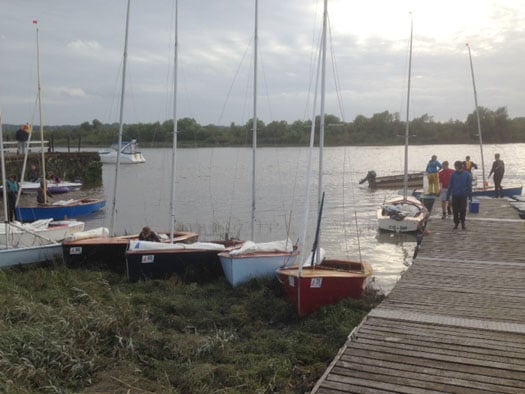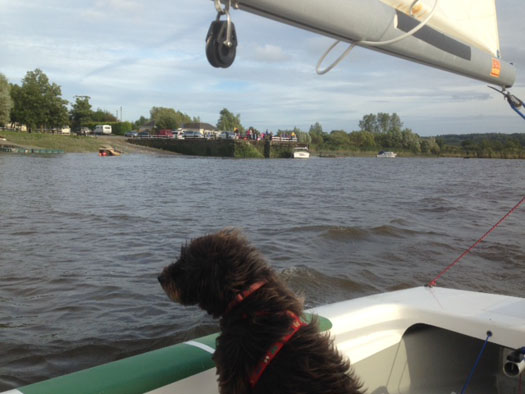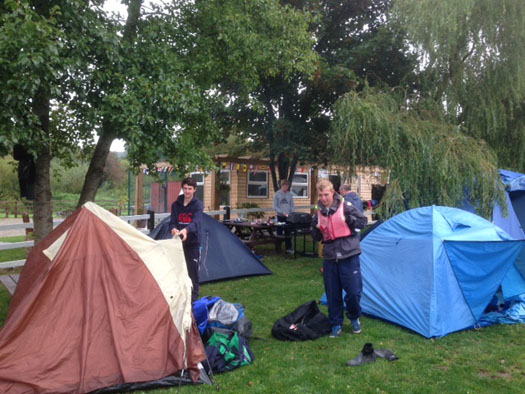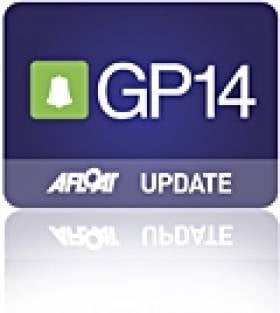Displaying items by tag: Villerstown Boating & Activities Club
Blackwater River Dinghy Cruise Voyages from Youghal to Villierstown
#dinghycruise – As previewed by Afloat.ie, last Saturday four visiting and five local GP14 dinghies crewed by 21 seafarers and two sea dogs set off from Youghal quay in County Cork at low water on the second annual Y2V Blackwater river cruise writes Norman Lee.
Molly the younger sea dog soon got the hang of scrambling to windward on almost every tack but sometimes preferred to stay to leeward to view the wildlife better and she probably set the tone for the many pre teen crews getting a taste for competitive/fun sailing in their respective dads racing machines.
The youngest boat was a beautiful Duffin built this year for Simon Culley and Libby Tierney of Blessington and the oldest, a lovely Bell Woodworking boat nearly 60–years–old and still in perfect fettle, now owned by 16–year–old Jack Nolan of Youghal.
One Mermaid and one Feva came along for the trip which included forming part of the backdrop for a society wedding in Ballintra House a classic yellow mansion, where a band serenaded us as we sailed by on a wide sweep of the river.
Villierstown Boating & Activities Club members at their brand new three week old facility on the riverbank couldn't do enough to make us welcome with hot soup tea and sambos and home cookies when we arrived and a massive fry on Sunday morning and free run of their facilities for the duration.
The value these guys have got from their sports council grant is unbelievable and great credit to all concerned and the welcome the GP visitors get in both Villierstown and Youghal makes it very possible this will be a well attended new addition to the annual GP circuit where the utility design of our boat comes to the fore.

GP14s berth on the river bank

Molly, just one of two seadogs on the cruise keeps a look out

Getting the tents ready at the new Villierstown clubhouse
More on dinghy cruising possibilities here: Is 'Adventure Sailing' a New Tack for Dinghy Sailors?





























































